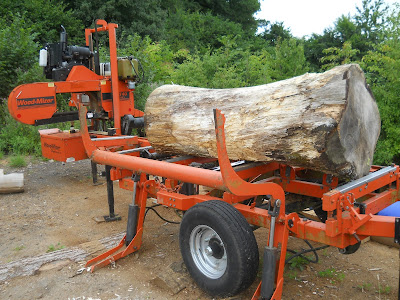On Tuesday, I packed my teaching sets of tools and a sleeping bag then headed over to Chelvey woodyard, near Bristol. There was a training week being run there by the Carpenters' Fellowship and I was invited to teach woodcarving skills. That's their logo above.
The Carpenters' Fellowship is an organisation that I'm a member of, which seeks to promote traditional timber framing skills. There were framers from various parts of Britain working on building a training centre at the woodyard from British Larch. It was also a chance for them to be assessed for official construction industry qualifications.
Learning woodcarving gave the participants a chance to see a different skill set and tools from those with which they were building the structure, as well as another skill to add to those that they were experiencing on the training week. It was also very interesting for me to see some of the tools that were used in framing, particularly the power tools, some of which I hadn't come across before.
The carving was on a piece of oak and shows the scene in the framing yard as the frame was being prepared for assembly. Hopefully, it will be fitted in some way into the finished structure as a 'date plaque'.
While at the woodyard, I was helped by Will Bolton to mill an oak trunk ready to become the figurehead for the ' Matthew'. The tree originally grew at Nether Stowey, on the Quantock hills in Somerset. It's great to be able to use local oak to make the figurehead and the timber and milling was very generously provided by Nigel Howe at Chelvey. Thanks also to Will for doing most of the hard work with the mobile sawmill.
We used a Wood Mizer to do the milling. This is basically a horizontally-mounted bandsaw which moves on rails along a trailer bed. I suppose we could have used traditional medieval-style pit sawing methods to cut the trunk, but that's a heck of a lot of time taken, hard work and also skill. The Wood Mizer had the job done in a couple of hours.
Regular readers (thank you, by the way!) may recall that Lawson Cypress from Ashton Court in Bristol was to be used for the figurehead. I had got to the stage where the blocks were cut out ready to be carved. However the Cypress timber, though durable outdoors, didn't seem to have the strength to be able to withstand the battering that it would get at sea. Oak can take that kind of punishment and is also authentic for the period that the replica of the Matthew represents.
I am going to let the oak blocks dry for a bit and see how it responds, before roughing the figurehead shape out of the individual blocks and then letting it season further. This means that any movement in the seasoning timber can be accounted for when gluing the blocks together. Once glued, I'll be able to do the final finishing carving, hopefully using tools similar to those that a medieval shipwright would have used.
You can find out more about the Carpenters' Fellowship here:
Here are some previous posts about the Matthew figurehead:










No comments:
Post a Comment